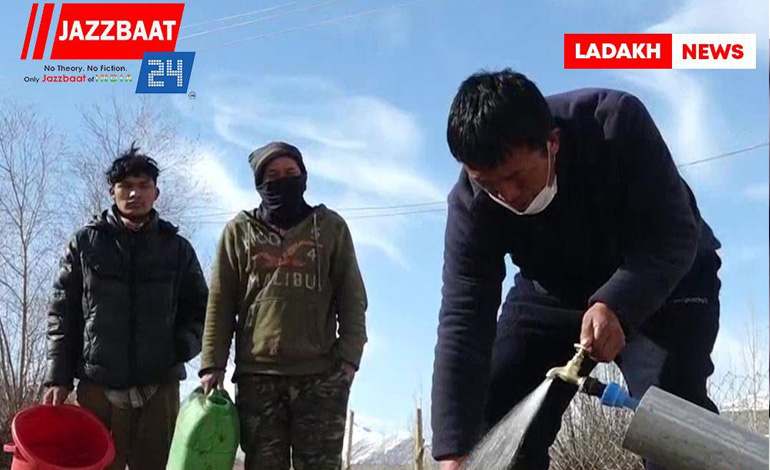Ladakh, the picturesque Union Territory nestled amidst the towering Himalayas, has achieved noteworthy advancements in the realm of water and sanitation with the successful execution of the Jal Jeevan Mission. The mission, launched by the central government, aims to provide tap water connections to all rural households across the nation. Ladakh, known for its pristine landscapes and serene beauty, has now embarked on a journey towards ensuring access to safe drinking water and improved sanitation facilities for its residents.
Under the visionary leadership of the local administration, Ladakh has made remarkable strides in fulfilling the goals set forth by the Jal Jeevan Mission. The region, which faced significant challenges due to its rugged terrain and extreme weather conditions, has overcome these obstacles with innovative solutions and determined efforts. The implementation of the mission has not only improved the quality of life for the people of Ladakh but also enhanced their overall well-being.
One of the major achievements of the Jal Jeevan Mission in Ladakh is the provision of tap water connections to a substantial number of households. Previously, many residents relied on traditional sources such as wells and hand pumps, which often posed health risks. With the introduction of tap water, the local population can now access clean and safe drinking water at their doorstep. This has not only saved time and effort but has also reduced the incidence of waterborne diseases in the region.
Additionally, the Jal Jeevan Mission has played a crucial role in the construction of water supply infrastructure across Ladakh. The implementation of pipelines and storage tanks has ensured a steady and uninterrupted water supply to remote areas, even during harsh winters when accessibility becomes challenging. The utilization of modern technology, including solar-powered water supply systems, has further enhanced the efficiency and sustainability of the infrastructure.
Moreover, the mission has also focused on improving sanitation facilities in Ladakh. The construction of household toilets and community sanitation complexes has promoted better hygiene practices and helped eradicate open defecation. This has had a significant impact on the health and well-being of the local population, especially women and children.
The success of the Jal Jeevan Mission in Ladakh can be attributed to the concerted efforts of various stakeholders, including the local administration, government agencies, and the community itself. The active participation of the residents, along with awareness campaigns and capacity-building programs, has contributed to the mission's effectiveness. Furthermore, the mission has generated employment opportunities for the local workforce, thereby fostering economic growth and empowerment.
As Ladakh continues its journey towards comprehensive water and sanitation coverage, it serves as an inspiring example for other regions facing similar challenges. The success achieved through the Jal Jeevan Mission not only fulfills the basic needs of the people but also lays the foundation for sustainable development and environmental conservation.
In conclusion, Ladakh's significant progress in water and sanitation infrastructure through the implementation of the Jal Jeevan Mission is a testament to the transformative power of government initiatives and community engagement. The provision of tap water connections, construction of water supply infrastructure, and improved sanitation facilities have not only elevated the quality of life but have also promoted health and well-being in the region. Ladakh's success story serves as a beacon of hope, inspiring other regions to work towards ensuring access to safe drinking water and sanitation for all.





